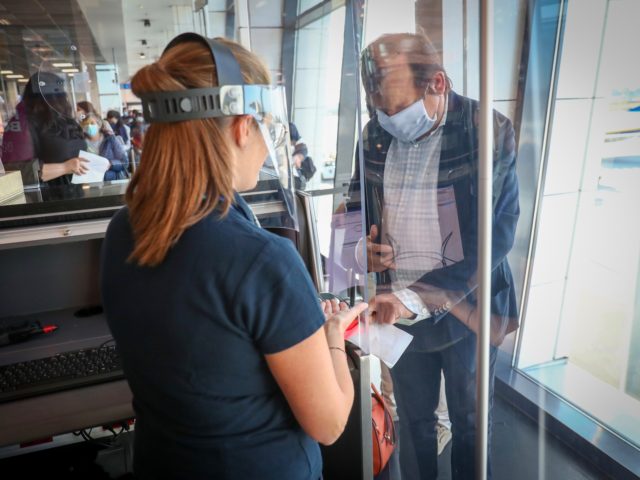An EU Commissioner has claimed that vaccine passports for the Chinese coronavirus are set to be “recognised” by the European Union in a supposed push to open up travel within the bloc.
The European Union said that while the implementation of vaccine passports is “premature” before enough people on the continent are vaccinated, the bloc has suggested that the system may come in place in the near future.
Margaritis Schinas, the European Commission’s vice-president, said per the Daily Mail that it is “perfectly imaginable that this can open avenues for other use, including facilitating travel”.
“We feel that now this is the time for these vaccine certificates to be recognised across the European Union, and even beyond the European Union,” the Greek politician added.
The EU’s Health Commissioner, Stella Kyriakides, also said that that the bloc is in “active discussion” about how to implement a vaccine passport system.
Spain has become the latest country to back the idea of health passports, with the country’s tourism minister, Reyes Maroto, announcing that Spain will introduce a “vaccination certificate”. The move follows similar pronouncements from Denmark, Iceland, and Greece, according to SchengenVisaInfo.
Maroto said that the Spanish government has a responsibility to not only build a “resistance to the virus but also the recovery and maintenance of Spain’s leadership in terms of tourism competitiveness,” adding that the industry needs “transforming and digitalising” to keep competitive.
A spokesman for the Department of Health in the UK told The Telegraph that the British government is not currently planning on implementing such a measure, as it is unclear whether vaccinations will prevent people from spreading the virus after they have been inoculated.
Though the British government has consistently denied that it has any plans to implement vaccine passports, a government-sponsored trial of such a system is set to be completed by as soon as March.
The World Health Organization (WHO) said last week that it was opposed to introducing vaccine passports “for the time being“.
“There are still too many fundamental unknowns in terms of the effectiveness of vaccines in reducing (virus) transmission and vaccines are still only available in limited quantities,” the WHO said.
Others have questioned the ethics of the concept of vaccine passports, including Dr Clare Wenham, assistant professor of global health policy at the London School of Economics, who warned that the system would only serve to create greater divides in society.
“From an ethical point of view vaccine passports are completely unacceptable. You’re going to create a two-tier system and history shows that when you create division within society it leads to civil unrest. It’s vaccine apartheid,” she said.
Dr Wenham went on to warn that in wealthier nations, the largest divide would likely occur between the young and the old because young people have been deprioritised in the vaccination rollout.
Ana Beduschi from the University of Exeter in the UK, who co-authored a study on the impact of vaccine passports on human rights, said: “Digital health passports may contribute to the long-term management of the COVID-19 pandemic. However, they pose essential questions for the protection of data privacy and human rights.”
“Arguably, such measures could preserve the freedoms of those who do not have the disease or have been vaccinated,” Beduschi said, but warned that “if some people cannot access or afford COVID-19 tests or vaccines, they will not be able to prove their health status, and thus their freedoms will be de facto restricted”.
Follow Kurt Zindulka on Twitter here @KurtZindulka

COMMENTS
Please let us know if you're having issues with commenting.